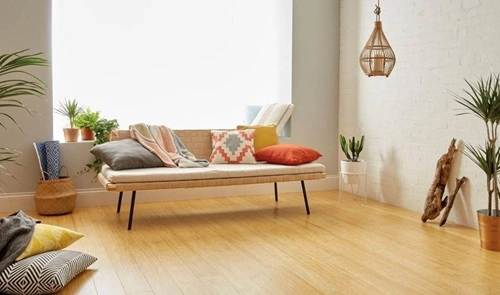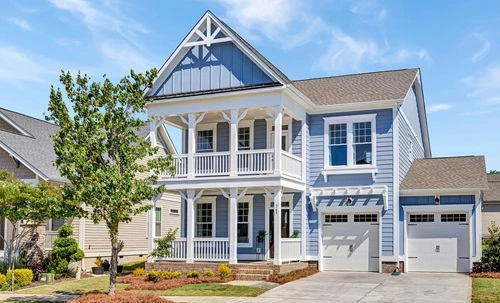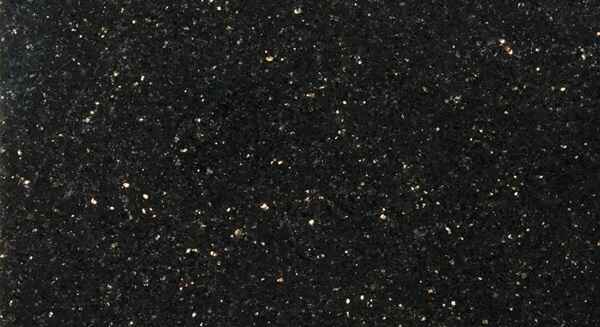Bamboo flooring has become a popular choice among homeowners and designers, thanks to its sustainability, durability, and unique aesthetic appeal. Often touted as an eco-friendly alternative to traditional hardwood, bamboo flooring is crafted from a type of grass that grows quickly, making it a renewable resource. However, like any flooring material, bamboo has its strengths and weaknesses.
In this article, we will explore the pros and cons of bamboo flooring, helping you make an informed decision about whether it’s the right choice for your home.
What is Bamboo Flooring?

Bamboo flooring is made from the fibers of the bamboo plant, which are compressed and treated to form planks. There are three main types of bamboo flooring:
- Horizontal Bamboo: Displays the natural bamboo grain pattern.
- Vertical Bamboo: Has a more uniform, streamlined appearance.
- Strand-Woven Bamboo: The strongest type, created by compressing bamboo fibers under high pressure.
Bamboo flooring is available in a variety of finishes, colors, and styles, making it versatile for different interior design preferences.
The Pros of Bamboo Flooring
1. Eco-Friendly and Sustainable
Bamboo is one of the fastest-growing plants in the world, with some species maturing in as little as three to five years. This rapid growth makes it a highly renewable resource compared to traditional hardwood trees, which can take decades to mature. For eco-conscious homeowners, bamboo flooring is an environmentally friendly choice.
2. Durability
Strand-woven bamboo flooring is exceptionally durable and can withstand heavy foot traffic, making it suitable for high-traffic areas like living rooms and hallways. When properly maintained, bamboo flooring can last for decades, rivaling the durability of hardwood floors.
3. Aesthetic Appeal
Bamboo flooring offers a unique and modern look. Its clean, natural lines and variety of finishes can complement a wide range of interior styles, from minimalist and contemporary to rustic and traditional. The light tones of natural bamboo can also brighten a space, making it feel more open and airy.
4. Cost-Effective
Compared to hardwood flooring, bamboo is often more affordable. While prices vary depending on the type and quality of bamboo, it typically offers a cost-effective alternative for those seeking the appearance and durability of wood without the higher price tag.
5. Easy Maintenance
Bamboo flooring is relatively easy to maintain. Regular sweeping or vacuuming, combined with occasional damp mopping, is typically enough to keep it looking its best. Its smooth surface also resists dust and allergens, making it a good choice for allergy sufferers.
6. Moisture Resistance
Bamboo is naturally more resistant to moisture than many hardwoods, making it a better choice for areas prone to humidity or occasional spills. While it is not entirely waterproof, strand-woven bamboo is less likely to warp or swell when exposed to minor moisture compared to traditional wood flooring.
7. Hypoallergenic
For households with allergy concerns, bamboo flooring is a great option. Its smooth surface does not trap dust, pet dander, or other allergens, contributing to improved indoor air quality.
8. Wide Variety of Options
Bamboo flooring comes in various colors, finishes, and styles, including natural, carbonized, and stained options. This variety allows homeowners to find a look that fits their design preferences.
The Cons of Bamboo Flooring
1. Susceptibility to Scratches
Despite its durability, bamboo flooring is prone to scratches, particularly from pets, heavy furniture, or sharp objects. This can be mitigated by using rugs, felt pads, and regular maintenance, but it remains a concern for some homeowners.
2. Limited Water Resistance
While bamboo is more moisture-resistant than many hardwoods, it is not entirely waterproof. Prolonged exposure to water or excessive humidity can cause warping, swelling, or discoloration. Bamboo flooring is not recommended for areas like bathrooms or basements where moisture levels are consistently high.
3. Inconsistent Quality
The quality of bamboo flooring can vary significantly depending on the manufacturer. Low-quality bamboo flooring is more likely to dent, scratch, or warp, so it’s essential to purchase from a reputable supplier. Cheaply made bamboo flooring may also contain adhesives or finishes with high levels of volatile organic compounds (VOCs), which can affect indoor air quality.
4. Limited Refinishing Potential
While some bamboo flooring can be refinished, the process is more limited compared to traditional hardwood floors. Refinishing depends on the thickness of the bamboo planks and the quality of the finish. Strand-woven bamboo, in particular, may not be suitable for refinishing due to its density.
5. Color Sensitivity
Bamboo flooring is sensitive to sunlight and can fade or darken over time when exposed to direct UV rays. This can lead to uneven coloring in areas with varying levels of sunlight. Window treatments or UV-resistant finishes can help mitigate this issue.
6. Environmental Concerns with Production
Although bamboo is a renewable resource, the production process can sometimes be less eco-friendly. The use of adhesives, chemicals, and energy during manufacturing can offset its environmental benefits. Additionally, if the bamboo is harvested unsustainably, it can harm local ecosystems.
7. Hardness Variability
Not all bamboo flooring is equally durable. While strand-woven bamboo is extremely hard, horizontal and vertical bamboo can be softer and more susceptible to dents and wear. Homeowners need to understand the differences between types to choose the best option for their needs.
8. Noise and Acoustics
Like hardwood flooring, bamboo can amplify sound and create echoes, particularly in large or minimally furnished spaces. This may necessitate the use of area rugs or soundproofing underlayment to reduce noise.
9. Installation Challenges
While bamboo flooring can be installed as a floating floor or glued down, it requires a level and moisture-free subfloor for optimal performance. Professional installation is recommended, especially for strand-woven bamboo, which can be harder to cut and handle.
Who Should Consider Bamboo Flooring?
Bamboo flooring is an excellent choice for:
- Eco-conscious homeowners seeking a sustainable alternative to hardwood.
- Design enthusiasts who appreciate the modern and unique look of bamboo.
- Budget-conscious individuals looking for durable flooring at a reasonable price.
- Allergy sufferers who prefer a hypoallergenic surface.
- Homeowners in moderate climates with stable humidity levels.
However, it may not be the best option for those in areas with high humidity, homes with heavy pet activity, or individuals who prioritize scratch resistance.
Tips for Choosing and Maintaining Bamboo Flooring
1. Select High-Quality Bamboo: Look for strand-woven bamboo flooring from a reputable manufacturer to ensure durability and quality.
2. Check Certifications: Opt for bamboo flooring certified by organizations like the Forest Stewardship Council (FSC) to ensure sustainable and eco-friendly harvesting practices.
3. Protect the Surface: Use rugs, felt pads on furniture, and avoid dragging heavy objects to prevent scratches.
4. Control Moisture Levels: Use a dehumidifier in humid climates or areas prone to moisture to prevent warping.
5. Regular Cleaning: Sweep or vacuum regularly and mop with a damp cloth using a cleaner specifically designed for bamboo or hardwood floors.
Conclusion
Bamboo flooring offers an attractive, sustainable, and cost-effective alternative to traditional hardwood flooring. Its eco-friendly nature, aesthetic versatility, and durability make it a popular choice for many homeowners. However, like any flooring material, it comes with its own set of challenges, such as susceptibility to scratches, sensitivity to moisture, and inconsistent quality.
By understanding the pros and cons of bamboo flooring and taking steps to select and maintain high-quality materials, you can enjoy the benefits of this modern flooring option for years to come. Whether you’re renovating your home or designing a new space, bamboo flooring can add a touch of style and sustainability to your living environment.



